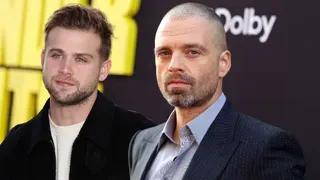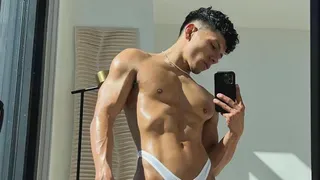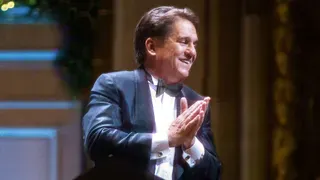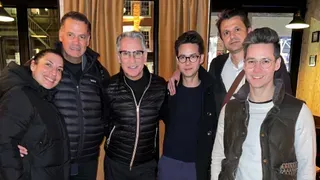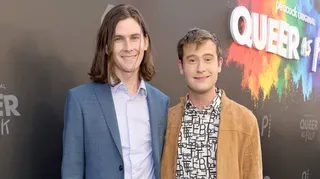November 7, 2023
These Companies Continued with LGBTQ+ Advertising in the Face of Backlash
Christopher Ehlers READ TIME: 6 MIN.
This past summer, as pro-LGBTQ+ advertising campaigns put companies like Bud Light and Target in the hot seat (the former lost about $395 million in US sales), companies were forced to take a hard look at whether showing their support for the LGBTQ+ community was worth the potential losses.
As you may recall, it all started when trans influencer Dylan Mulvaney, who had partnered with Bud Light, posted in a video celebrating a unique can the brand had provided her with an image of her face. The video prompted boycotts of Bud Light, which swiftly led to similar boycotts against other brands that marketed to the LGBTQ+ community.
The massive backlash resulted in Bud Light losing its top spot as the bestselling beer in America to Modelo. Even so, ABC News reports, Bud Light didn't back down, releasing a statement that read: "As we've said, we remain committed to the programs and partnerships we have forged over decades with organizations across a number of communities, including those in the LGBTQ+ community."
According to ABC News, the Bud Light incident spawned concern among advocates about the potential "chilling effect" for companies that opt for LGBTQ+-inclusive advertising. The backlash also caused concern among corporations, especially given that previously commonplace marketing practices, such as Pride ads, have now become contentious due to America's fraught political landscape. However, ABC News reports that the prevalence of LGBTQ+-inclusive advertising in recent months is not much different from past years.
But navigating the waters of trying to be an inclusive company in the face of such divisive political vitriol can be a difficult balance: Backlash can be swift and impactful for companies that choose to forgo LGBTQ+-inclusive advertising, just as it can be for those that choose to forge ahead with inclusive advertising.
"I'm sure there are at least some companies that have pulled back, but brands can't stick with one demographic and continue to grow," said Michael Wilke, founder of AdRespect, an archive of LGBTQ+ representation in marketing. But as younger consumers get older and elderly consumers drop off, Wilke told ABC News, "you need to continue to appeal to new audiences."
Unsurprisingly, newer generations are far more openminded – and far more queer – than older generations. And given that the worldwide spending power of LGBTQ+ consumers comes in at a whopping $4.7 trillion, companies are unlikely to pull back entirely from LGBTQ+-inclusive advertising.
In addition to Bud Light and Target, other companies like Maybelline, Cracker Barrel, Hilton, Westin, Delta Airlines, and Amtrak have also received attention for their LGBTQ+-inclusive advertising. But there are also some companies that have forged ahead with inclusive ads despite the backlash. Here are several such companies:
Levi's
While Levi's is not a new ally, their support of the LGBTQ community was in full force this year, and not just during the month of June: They partnered with Human Rights Campaign and GLAAD, showed opposition to anti-LGBTQ legislation, and recently celebrated National Coming Out Day.
Harry's
Harry's "Pride Shave Set" was on the shelves long past the month of June, and profits from all Pride products continue to go to the Trevor Project. "We're grateful to work with them and support the LGBTQ community year-round," says their website.
The North Face
In May, The North Face participated in "The Summer of Pride," a series of events with drag queen Pattie Gonia, an environmental and LGBTQ activist. The result was three months' worth of hikes and workshops around the country despite the consumer boycotts that were plaguing Bud Light and Target at the same time. This liberal political messaging, says Wilke, helps brands like The North Face create progressive and cutting-edge advertising that helps them stand out in a very crowded marketplace.

